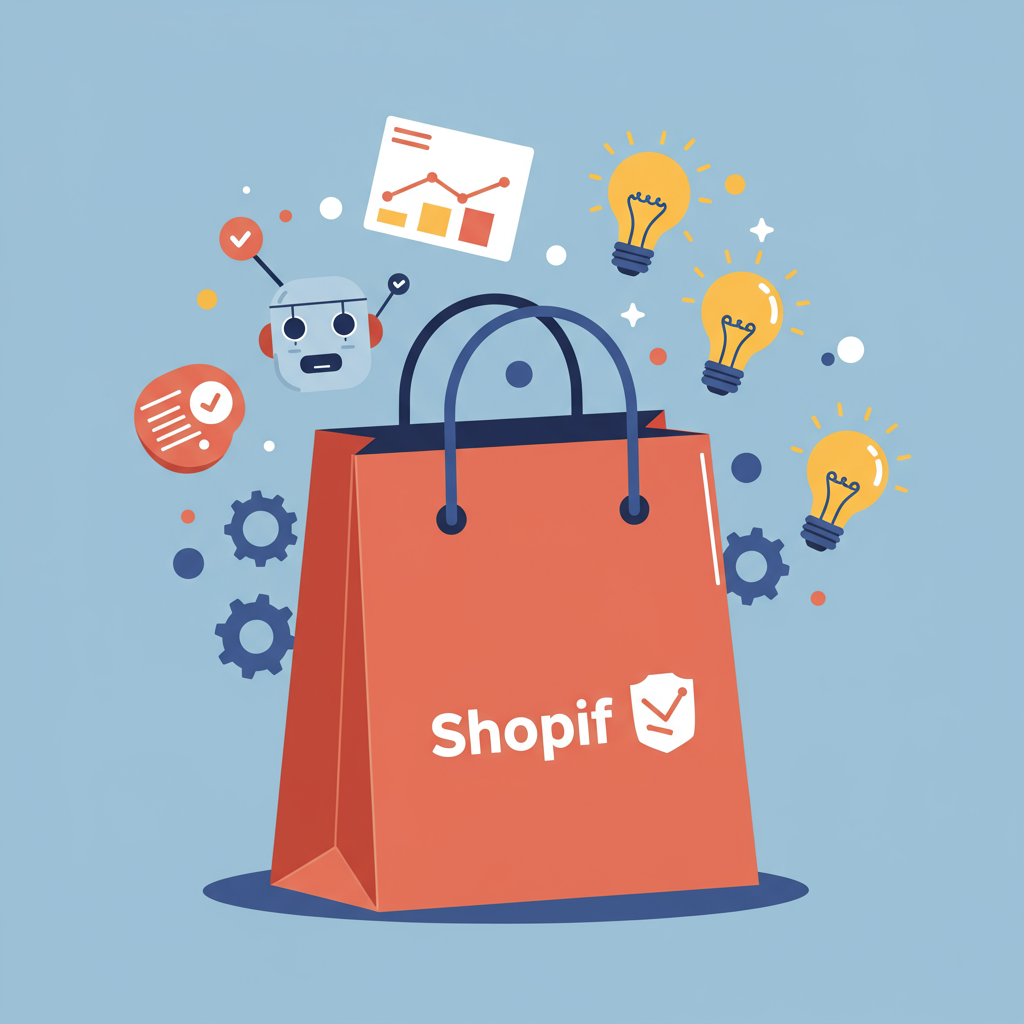Discover how artificial intelligence can revolutionize your e-commerce store, from automating tasks to personalizing customer experiences.
As a Shopify merchant, I’m constantly looking for ways to gain an edge in the competitive e-commerce landscape. The digital world evolves at lightning speed, and staying ahead means embracing innovation.
Lately, one technology has been dominating conversations and showing immense promise for online businesses: Artificial Intelligence, or AI.
I’ve personally seen how AI is no longer a futuristic concept but a practical, powerful tool available right now to help us, the merchants, streamline operations, enhance customer experiences, and ultimately, boost sales.
This guide is my attempt to share what I’ve learned about unlocking Shopify’s AI powerhouse. I want to walk you through the essential tools and apps that can transform your store.
My goal is to demystify AI for you, showing you how it can be integrated seamlessly into your existing Shopify setup, making your life easier and your business more profitable.
So, why should you, as a Shopify merchant, care about AI? The answer is simple: efficiency, personalization, and growth.
AI can automate repetitive tasks that consume valuable time, freeing you up to focus on strategic initiatives. Think about writing product descriptions or responding to common customer queries.
It also enables hyper-personalization, allowing you to offer each customer a unique shopping journey, which is proven to increase conversion rates and customer loyalty.
Furthermore, AI provides deep insights into your data, helping you make smarter decisions about marketing, inventory, and product development.
Let’s dive into the specific areas where AI can make a significant impact on your Shopify store.
Product Content Generation: One of the most time-consuming tasks for any merchant is creating compelling product descriptions. AI-powered content generators are a game-changer here.
These apps can take basic product information and, within seconds, generate unique, engaging, and SEO-friendly descriptions, titles, and even blog posts.
I’ve found that using these tools not only saves hours but also ensures consistency in my brand voice across all product listings. It’s like having a dedicated copywriter on staff, 24/7.
Image Optimization and Enhancement: High-quality product images are crucial. AI tools can automatically optimize image sizes for faster loading, remove backgrounds, or even enhance image quality.
Some advanced AI apps can even generate lifestyle images or variations of your product images, saving you the cost and effort of professional photoshoots.
Customer Service and Chatbots: Providing instant support is key to customer satisfaction. AI-powered chatbots can handle a vast majority of common customer inquiries around the clock.
These bots can answer questions about shipping, returns, product details, and even guide customers through the purchasing process, escalating to a human agent only when necessary.
I’ve noticed a significant reduction in my customer service workload since implementing an AI chatbot, allowing me to focus on more complex issues.
Personalized Product Recommendations: Think about how Amazon suggests products. That’s AI at work. Shopify apps can leverage AI to analyze customer browsing history, purchase patterns, and demographics.
Based on this data, they can then display highly relevant product recommendations on your store, leading to increased average order value and repeat purchases.
Marketing Automation and Optimization: AI can revolutionize your marketing efforts. From crafting personalized email campaigns to optimizing your ad spend on platforms like Facebook and Google.
AI tools can analyze audience behavior, predict optimal sending times for emails, and even suggest ad creatives that are most likely to convert. This takes the guesswork out of marketing.
Inventory Management and Demand Forecasting: Running out of stock or having too much unsold inventory can be costly. AI can analyze historical sales data, seasonality, and market trends.
It then provides accurate forecasts for demand, helping you optimize your inventory levels, reduce waste, and ensure you always have popular items in stock.
SEO and Content Strategy: AI can assist in identifying high-ranking keywords, analyzing competitor content, and even generating outlines or drafts for blog posts that are optimized for search engines.
This ensures your content is not only engaging but also discoverable, driving organic traffic to your Shopify store.
Analytics and Insights: Beyond basic reports, AI-powered analytics tools can uncover hidden patterns and correlations in your sales data.
They can identify your most valuable customers, predict churn, and highlight opportunities for growth that might otherwise go unnoticed.
So, how do you choose the right AI tools for your store? I recommend starting with your biggest pain points. Is it customer service? Content creation? Marketing?
Look for apps that integrate seamlessly with Shopify and offer clear benefits. Many offer free trials, so you can test them out before committing.
Remember, AI is a tool to augment your efforts, not replace them. It’s about working smarter, not necessarily harder.
The future of e-commerce is undoubtedly intertwined with AI. As these technologies become more sophisticated and accessible, their impact on our businesses will only grow.
Embracing AI now will position your Shopify store for long-term success and resilience in an ever-changing market.
I truly believe that by leveraging these AI powerhouses, you can unlock new levels of efficiency, personalization, and profitability for your Shopify business.
What do you think about the potential of AI for Shopify merchants? I’d love to hear your thoughts and experiences!






